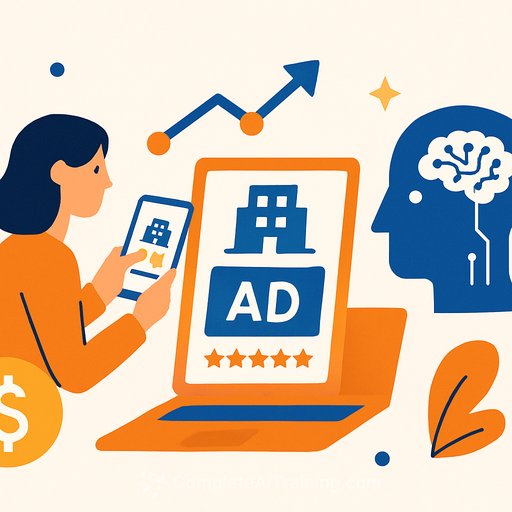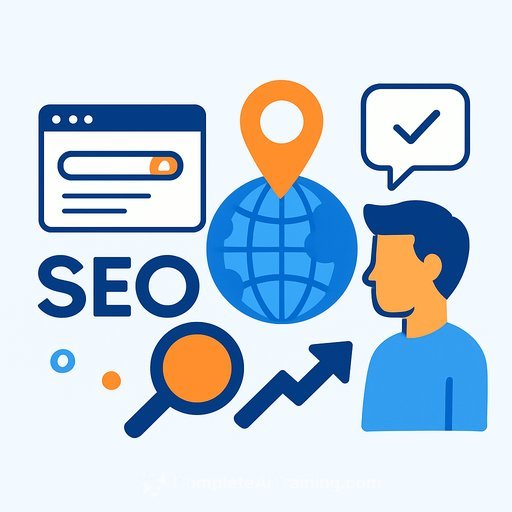Hotels Face AI's Double-Edged Impact on Marketing
AI is cutting acquisition costs for hotels while also threatening the old playbook for demand capture. New findings show AI-led ad tools deliver outsized conversions, yet AI travel assistants can route guests past traditional brand marketing entirely.
Data from Cendyn covering 6,777 hotels reports that properties using Google's AI-based Performance Max saw conversion rates more than three times higher than traditional campaigns. Conversions rose 262% year over year compared with 2024, even as ad costs increased 20% to 40%. A separate study from Florida Atlantic University warns that AI booking agents often ignore brand ads and choose hotels based on relevance, price, and reviews.
What This Means for Hotel Marketers
AI can improve paid media efficiency, but dependence on brand search and display is getting riskier. If assistants sidestep ads, your direct demand must be strong enough to stand on its own-accurate data, clear value, and distribution that surfaces well in AI-driven trip planning.
Action Plan: Make AI Work for You
- Lean into Performance Max with guardrails: Feed quality, audience signals, and creative variety determine outcomes. Set clear budgets and conversion rules; monitor search term insights and asset performance. Learn the mechanics in Google's guide: Performance Max overview.
- Structure your data for machine consumption: Implement Hotel structured data, keep Google Business Profile accurate, and ensure rates, fees, and policies are machine-readable. Start here: Google's Hotel structured data.
- Be assistant-ready: Publish clear FAQs (amenities, parking, Wi-Fi, pet policy, cancellation). Maintain price parity and transparent taxes/fees. Keep inventory reliable across your direct site, metasearch, and key distributors to avoid being filtered out.
- Strengthen direct demand moats: Member-only rates, on-site credits, late checkout, and flexible policies win in comparison summaries. Build owned audiences with CRM, email, and SMS; run lifecycle flows for browse/abandon/cart recovery.
- Protect your brand terms-prove the lift: Run brand holdout tests to quantify incremental bookings. If assistants start winning the query, shift spend to higher-intent non-brand, metasearch, and direct loyalty acquisition.
- Measure what matters: Track effective CPA, conversion rate, metasearch share, and direct booking ratio. Watch for rising "unknown" referral traffic and AI answer boxes on brand queries as early signals of assistant influence.
- Feed the machine great creative: Provide short videos, room and amenity images, and copy blocks that spotlight concrete benefits (e.g., "3-min walk to convention center," "free breakfast," "onsite parking"). Specifics help both ads and assistants rank you correctly.
- Keep metasearch clean: Sync accurate rates and availability, fix taxes/fees mismatches, refresh photos, and respond to reviews. Small mismatches push you down in assistant recommendations.
What to Test Next Quarter
- PMax vs. standard search budget split tests; optimize for revenue or margin, not just bookings.
- Brand-keyword holdouts to quantify incrementality and guide bidding rules.
- Assistant-friendly content: structured FAQs, comparison tables, and "best for" use cases (business travel, families, events).
- On-site pricing clarity: taxes and resort fees shown early; test impact on bounce and conversion.
- UGC and review snippets in creatives to lift trust in automated placements.
Team Skills to Prioritize
- Feed management and first-party data activation across ads, metasearch, and CRM.
- Experiment design: geo splits, conversion lift, and MMM-lite for channel budgeting.
- Content ops for schema, FAQs, and rapid updates to rates, policies, and amenities.
If you're upskilling your marketing team on AI-driven acquisition and measurement, see this certification: AI Certification for Marketing Specialists.
The takeaway: Use AI-driven ads to squeeze more value from rising media costs, while building an assistant-ready presence that earns you a spot in zero-ad recommendations.
Your membership also unlocks:






